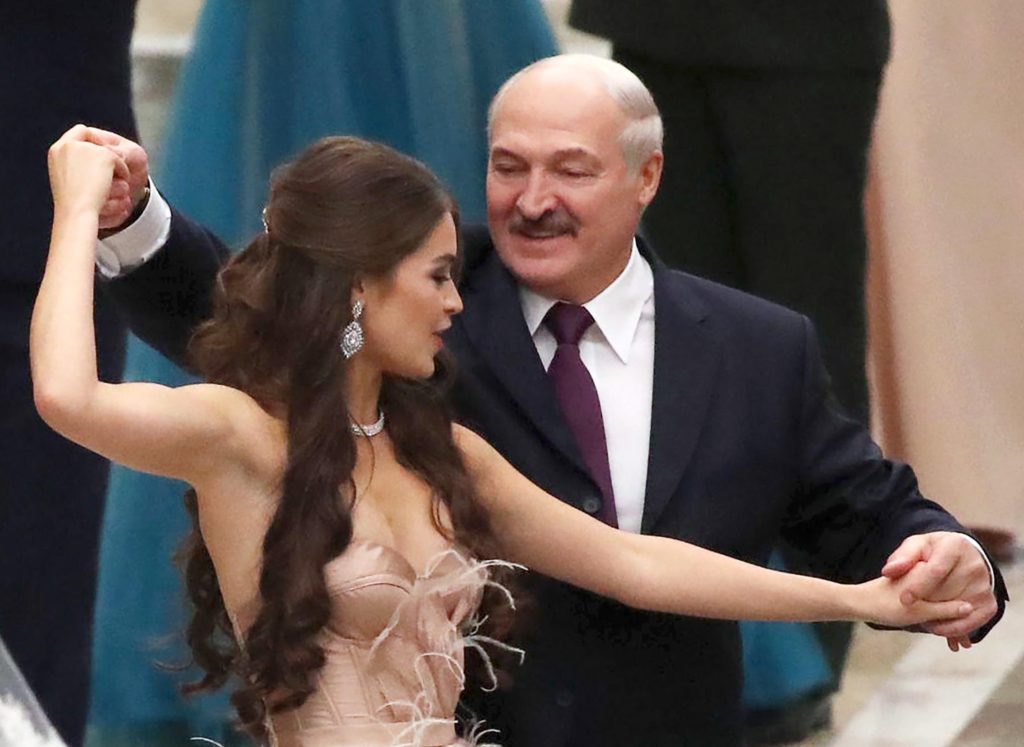Belarus, virtually besieged by Western diplomacy after intensifying a crackdown by President Alexander Lukashenko on opponents, is getting a $1 billion IMF lifeline as part of a global package to help countries recover from the COVID epidemic.
Though the package, a boost to Lukashenko, who is now completely isolated from the West and embraced mostly by Moscow, was slammed by some opposition leaders as “manna from heaven”, the IMF package is in fact automatic. It is part of a wide disbursement of an additional SDR (Special Drawing Rights) of 650 billion created by the fund for IMF participant states.
All of this comes as Belarus adopted an even shriller tone towards the United States, withdrawing its agreement to a new ambassador waiting for months to take up her duties and asking Washington to reduce its diplomatic staff in Minsk.
The United States, along with Canada and Britain, imposed new sanctions on Belarus last week as the country marked a year since Lukashenko was re-elected to a sixth term amid vast rallies denouncing what activists called mass electoral fraud.
Belarus, the spokesman said, had asked the United States to reduce the size of its embassy staff to five by the end of the month. “We see no point in the presence of such a large staff…It is simply incomprehensible what they are doing there against such a background.”
Lukashenko told reporters this week that his opponents were bent on staging a coup and his clampdown on protests with mass arrests had “prevented the outbreak of a new world war” as any confrontation would have drawn in nuclear-armed Russia – the president’s sole economic and, possibly, military ally.
The new U.S. sanctions include punitive measures against Belaruskali, the company which extracts and exports potash, Belarus’s main foreign currency earner, and the Belarusian National Olympic Committee, accused of evading visa restrictions and engaging in money laundering. European Union sanctions, imposed with uncharacteristic speed after the diversion to Minsk of a scheduled flight and the arrest of a dissident journalist on board also took aim at Belarusian potash and various financial dealings.
AMBASSADOR IN NEW APPEAL TO BELARUS
Fisher marked the anniversary of the disputed election by issuing a video appeal to Belarus to observe international standards of political behaviour, including the release of “political prisoners” and vowing to intensify pressure on Lukashenko.
“What we have found is that it is the language of pressure, it is the hard tools of sanctions….that is how we seem to be most effective in conveying the views of the West,” she said.
A year after the protests unexpectedly gripped Minsk and other cities only to be snuffed out by brutal police tactics, the opposition is bruised and unable to marshal any real resistance to the president. Its leaders are either in jail or calling for even firmer Western action from bases in exile – mainly in Lithuania, Poland and Ukraine. More than 30,000 people have been jailed – mostly for short periods.
Lukashenko has for years tried to maintain a balancing act – upholding close ties with Russia while trying to ingratiate himself with Western countries with offers of policy changes.
This came to an abrupt halt in recent months with the police action against protesters and the scrambling of a fighter jet to force down the Ryanair flight headed for Lithuania.
Two scandals last month plunged Belarus into fresh turmoil – the refusal of Belarusian sprinter Krystina Timanovskaya to be sent home from the Tokyo Olympics and the death of a Belarusian opposition activist found hanged in a park in Kyiv.
Belarus has received large credits from Russia to counter the effect of sanctions imposed by the West. During his eight-hour news conference this week, Lukashenko denied there had been any “repression” in Belarus and acknowledged he was engaged in talks with the Kremlin to secure an additional $1 billion loan – amid longstanding discussions on pursuing a “union state” project together with the Kremlin.
But he was also emphatic in stressing his line of recent months that Belarus was “sovereign” and that any such project would never involve his country being simply absorbed by its far more powerful neighbour.
NEW POLICE ACTION AGAINST LUKASHENKO OPPONENTS
Belarusian activists, meanwhile, said a former ambassador, one of several opposition figures who took on Lukashenko in last year’s presidential election, had been detained and his whereabouts were unknown. Igor Leshchenya had served as ambassador to both Israel and Slovakia.
Police have also searched homes and detained more than 20 members of the Skhod (Assembly) movement, which actively supported last year’s mass protests.
And Roman Protasevich, the dissident blogger detained along with his girlfriend aboard the diverted Ryanair flight, took part in another televised interview, distancing himself from the opposition. Fellow activists say his appearances – on television and at a government news conference – were staged under duress.
“I truly believed in what I was doing. And I wasn’t doing it for the reasons that the opposition was and even now is still pursuing,” he told pro-Kremlin Russia Today television. “I was at many times too committed to these ideas and believed in ideals of some sort. Unfortunately, in real life there are far fewer of these ideals than I thought.”

